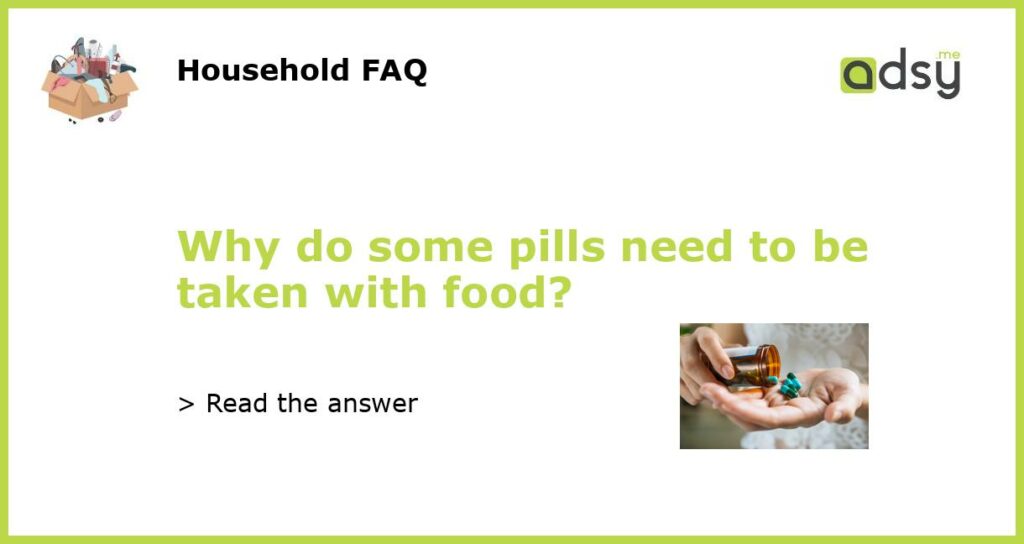The Importance of Taking Pills with Food
If you have ever been prescribed medication, you may have noticed that some pills come with instructions to take them with food. This may raise the question: why do some pills need to be taken with food? While it may seem like an inconvenience, taking certain medications with food can have a significant impact on their effectiveness and how they are absorbed by the body. In this article, we will explore the reasons behind this recommendation.
Enhancing Absorption
One of the main reasons why some pills need to be taken with food is to enhance their absorption in the body. Certain medications, especially those that are classified as lipid-soluble, require the presence of fat for optimal absorption. When these medications are taken on an empty stomach, there may not be enough fat available for them to dissolve in, leading to reduced absorption and potentially ineffective treatment. By taking these pills with food that contains fat, the medication can bind to the fat molecules, improving its absorption and increasing its therapeutic effect.
Reducing Upset Stomach and Side Effects
Taking certain medications on an empty stomach can sometimes cause stomach irritation or other digestive side effects. This is especially true for medications that can be harsh on the stomach lining. By taking these pills with food, you create a protective layer in the stomach that can help reduce the risk of irritation and minimize potential side effects. Additionally, some medications may cause nausea when taken on an empty stomach, and having food in your stomach can help alleviate this symptom.
Timing and Sustained Release
Another reason why some pills need to be taken with food is related to the timing of their release in the body. Certain medications are designed to have a sustained-release mechanism, where the active ingredient is gradually released over an extended period of time. Taking these pills with food can help regulate the rate at which the medication is released, ensuring a steady and controlled distribution in the body. This is particularly crucial for medications that need to maintain a consistent therapeutic level in the bloodstream to achieve the desired effect.
Interactions with Food
Sometimes, there are specific food interactions with certain medications that necessitate taking them with a meal. Certain foods can affect the way a medication is metabolized or absorbed, potentially reducing its effectiveness or causing adverse reactions. For example, some medications may interact with calcium-rich foods and dairy products, leading to decreased absorption. By taking these pills with a meal, you can minimize the possibility of any negative interactions and ensure that the medication is being processed by the body as intended.






